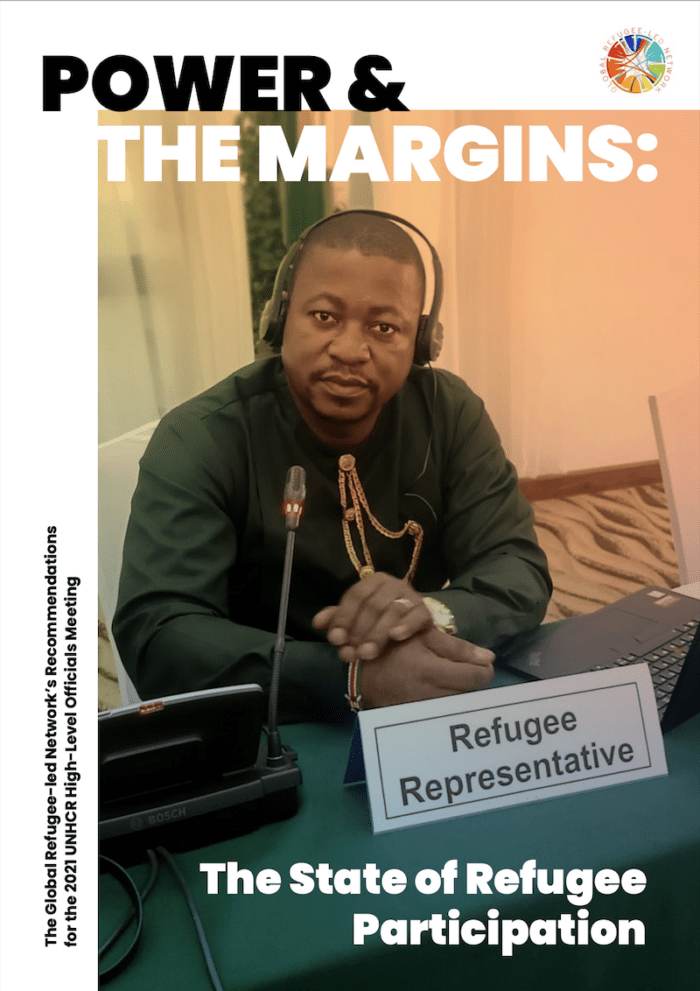Most Central American migrants cite economic conditions as a reason for their decision to leave their countries. For some it is the only reason: they migrate because they can no longer survive where they are. For some, their loss of livelihoods is due to environmental pressures such as drought, hurricanes or the long-term effects of climate change. For others, their decisions to migrate are the result of both economic desperation and personal insecurity due to criminal violence. For almost all of them, poverty and loss of hope that conditions will improve are factors in their decisions to move.
Power & The Margins: The State of Refugee Participation
Published by the Global Refugee-Led Network and written by Global Independent Refugee Women Leaders (GIRWL) Co-founders Shaza Alrihawi, Anila Noor and Najeeba Wazefadost, with John Bolingo Ntahira and Christa Kuntzelman. With few exceptions, refugees have historically been excluded from systematic and meaningful inclusion in high-level governance areas of policy- and decision-making (Harley 2021). The exclusion […]
Reducing Irregular Migration from Central America Through Alternative Regular Migration Pathways
The short answer to the question of why so many Central Americans are setting off on dangerous irregular migration journeys is stunningly simple: because there is virtually no way that they can move through regular, legal, safe channels.
Regional Cooperation and Co-Responsibility
This report from the North and Central American Task Force on Migration outlines concrete recommendations for a comprehensive regional approach and governance architecture to address migration. The issues are simply too complex to be dealt with by any one country acting along.
Cooperación y corresponsabilidad regionales
El fortalecimiento de los mecanismos regionales de corresponsabilidad en Centroamérica para las personas migrantes y refugiadas no solo ofrece una nueva perspectiva para responder a la migración en la región, sino que también contribuirá a mejorar la distribución de responsabilidades a nivel mundial, tal como lo piden el Pacto Mundial sobre Refugiados y el Pacto Mundial para una Migración Segura, Ordenada y Regular.



